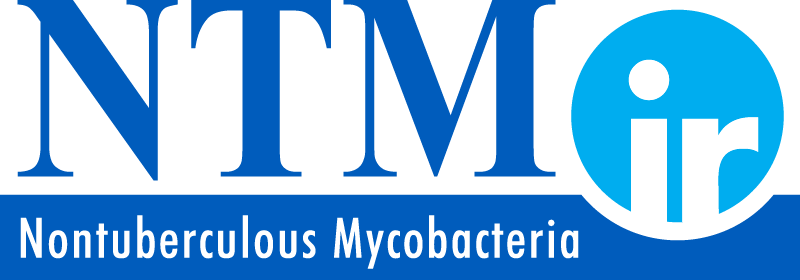NTM is likely not a rare condition. Rather, it is frequently misdiagnosed and often not tested for.
Seeing a local pulmonary or infectious disease specialist is the first step in diagnosing an NTM infection so that you can be treated. If you need to find a local specialist, a good place to start is with our Physician Referral List.
Treatment of an NTM infection can be quite complex and it is best to have a specialized mycobacteriology lab analyze your sputum so the species of NTM is accurately identified. This will help your doctor determine the best drug combinations to be used in your treatment.
Because of the complexity of developing a treatment plan, you may wish to ask your doctor about the feasibility of a referral to a center that specializes in treatment of NTM infections. Often the treatment of NTM lung disease involves more than one physician, and there are other medical disciplines that can further support you as a patient. Because treating this disease is so complex, you might want to look for doctors who are willing to work with other medical professionals as part of your “treatment team.”
National and regional referral centers that specialize in pulmonary NTM disease include:
• Georgetown University Hospital in Washington, D.C.
• The Johns Hopkins University, Baltimore, Maryland
• Lankenau Medical Center in Wynnewood, Pennsylvania
• Mayo Clinic in Rochester, Minnesota
• National Heart, Lung & Blood Institute, (NIH) Bethesda, Maryland
• National Jewish Health in Denver, Colorado
• Oregon Health and Sciences University in Portland
• University of California San Diego Medical Center
• University of Florida in Gainesville
• University of North Carolina in Chapel Hill
• University of Pennsylvania in Philadelphia
• University of Texas Health Center in Tyler, Texas
• Toronto Western Hospital in Ontario
• Several locations in Queensland, Australia
• NYU Langone, New York
• Kansas University Medical Center
Fern Leitman, who co-founded NTMir, chose to initially go to a national referral center because they specialize in treatment of respiratory diseases including mycobacterial infections. After this initial treatment, she continued to be seen regularly there, while her local physician coordinated with them to maintain her treatment and care at home. In this way, local physicians become more expert at treating NTM lung disease, which is a greater benefit to patients.
In addition to pulmonary and infectious disease specialists, other medical professionals who may be valuable additions to your team include internal medicine specialists, respiratory therapists, dieticians or nutritionists, and mental health professionals.
Many patients also like to explore integrative medicine treatments. Although most integrative medicines and treatments are not FDA-approved or scientifically vetted through clinical trials, some patients report therapeutic benefits from different kinds of integrative medicine and vitamins or supplements.
If you have found something that works for you, that is great! But before you try anything, particularly something that you ingest or inject, please consult your physician. Certain vitamins and minerals (calcium, for example) can interfere with the effectiveness of certain antibiotics, as can certain food products, so it is important that your doctors know what you are taking, in case you need schedule those differently from your prescribed medications. You can also consult with your pharmacist about drug/supplement interactions.
In addition, you should never start or stop any prescribed medication or treatment without consulting your doctor first.
